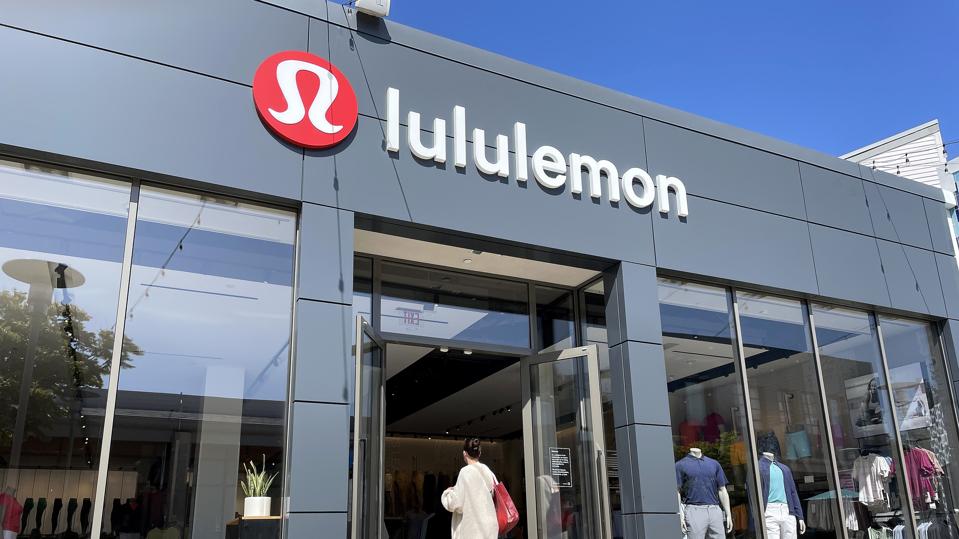Topline
Luxury athletic wear brand Lululemon has sued Costco in federal court and accused the big box store of selling products that purposefully rip off some its most popular items for a fraction of the price—the latest lawsuit to come out of an increasingly prevalent “dupe culture” that has left big-name companies with little recourse against brands that produce copycat products for less.
Key Facts
In a lawsuit filed in California, Lululemon accused Costco of selling and, in one case, manufacturing knockoffs of its Scuba sweatshirts, Define jackets and ABC pants.
The complaint alleged trade dress infringement, unfair competition under the Lanham Act, patent infringement and violation of the California Unfair Business Practices Act, and asks that Lululemon be compensated for the lost profits and “significant harm” done to its brands and reputation.
Costco, which did not respond to request for comment from Forbes on Tuesday, could be forced to pay up if Lululemon prevails, but winning a trademark infringement lawsuit over dupe products is a tall order.
Dozens of successful brands have sued over the increasing production of dupes in the last several years, but proving a product was copied isn’t enough to win—the original producer must also show that the copycat product could actually “dupe” customers into believing the knockoffs are the real thing.
The onus of proving the copycat product actually confused customers and impacted the original manufacturer’s business falls on the originating company, New York trademark lawyer Karl Zielaznick told Forbes, and it’s very hard to prove: “Customers often know that they aren’t buying a $5,000 watch for $100… They know it’s a different, dupe product,” he said.
Get Forbes Breaking News Text Alerts: We’re launching text message alerts so you’ll always know the biggest stories shaping the day’s headlines. Text “Alerts” to (201) 335-0739 or sign up here.
Key Background
The prevalence of “dupe culture” has skyrocketed in the last decade, largely thanks to TikTok, as customers search for and buy products that are cheaper, almost identical versions of high-end items. As opposed to generations before who “may have shopped for knockoffs on the sly,” Jennifer Baker of creator management platform Grin told The Guardian, young people are now happy to buy knockoff products and share their finds with the world. TikTok videos with #dupe hashtag have racked up more than 6 billion views, and shoppers can easily find counterfeits for everything from a $600 hair tool to a $40 face wash. Because shoppers are happily and knowingly buying the fake products, nobody is actually being duped into thinking knock-offs are the real thing, Zielaznick explained, which makes it much harder to prove brand confusion.
Surprising Fact
In December, the e.l.f. Cosmetics company admitted in federal court that it created a mascara product called the Lash ‘N Roll specifically meant to mimic the Hook N’ Roll brush of Benefit Cosmetics’ Roller Lash mascara, which has produced $278 million in revenue from U.S. sales since 2015. E.l.f released its product in 2022, and the two mascaras are packaged and marked similarly. Despite the admission and similarities, a judge ruled that the e.l.f. product did not infringe on the trademark or trade dress of Benefit Cosmetics because it was very unlikely customers would ever actually confuse the two products. To win, Benefit would have had to prove e.l.f. had managed to actually dupe buyers, which the company failed to do.
Crucial Quote
“It’s not enough to have someone admit they looked at or were inspired by your product,” Zielaznick said. “You have to be able to prove in some other way that this is harming you. There has to be a true attempt by the dupe manufacturer to deceive, and it’s very hard to prove that that intent exists.”
What To Watch For
The verdict in pending trademark lawsuits. Snack giant Mondelez International has sued grocery chain Aldi over claims the store is mimicking the packaging of cookies like Oreo, Chips Ahoy! and Nutter Butter with the intention of confusing customers. Williams-Sonoma is suing a website called Dupe.com, which allows shoppers to search for products that look eerily similar to something they liked online, and American Eagle is suing Amazon over claims it ripped off branding from the Aerie clothing line to confuse online shoppers. Deckers, the parent company of Ugg, is suing Quince for alleged trademark infringement related to a copycat version of its UGG Classic Ultra Mini boots.

